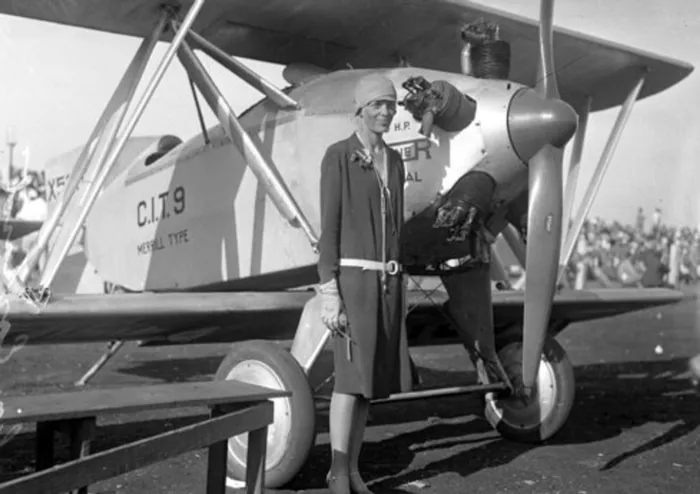Amelia Earhart may have died as a castaway

Amelia Earhart may have died after living as a castaway and not in a plane crash as was previously thought. Researchers from the International Group for Historic Aircraft Recovery (TIGHAR) revealed parts of a skeleton that washed up on the island of Nikumaroro in the Pacific Ocean may have belonged to the great American pilot.
She was a pioneer who became the first female pilot to fly solo across the Atlantic Ocean, in 1932. In July 1937 her plane went down off the coast of Howland Island, near Nikumaroro, during an attempt to fly around the world. Efforts to find Mrs Earhart’s remains were unsuccessful at the time. The unidentified bones were first discovered in 1940, and experts from TIGHAR said they believed Mrs Earhart lived out her final days as a castaway stranded in the middle of the Pacific.
TIGHAR has been trying to prove the bones belong to the American pilot since 1998, and says they “appear consistent with a female of Earhart’s height and ethnic origin”. The bones had been previously confirmed to have belonged to a castaway, and not the victim of a plane crash. A comprehensive study of the Nikumaroro area showed bonfires had been lit and fish bones left around by someone living on the atoll.
“There is an entire final chapter of Earhart’s life that people don't know about. She spent days – maybe months – heroically struggling to survive as a castaway,” Ric Gillespie, who led the study, told CNN. “There are historical documents that prove official airlines received radio calls for help in 1937. If we look at the press of the time, people believed she was still alive.
“It was only when planes were sent to fly over the islands where the distress signals were coming from and no plane was seen that the searches shifted towards the ocean. But she lived and died in that island for a while.” The human remains from 1940 were initially dismissed by British authorities who were convinced the bones belonged to a male, and ended the investigation. “We believe she survived heroically, and alone, for a period of time, in terrible circumstances. History needs to tell her story right,” Mr Gillespie added. – The Independent